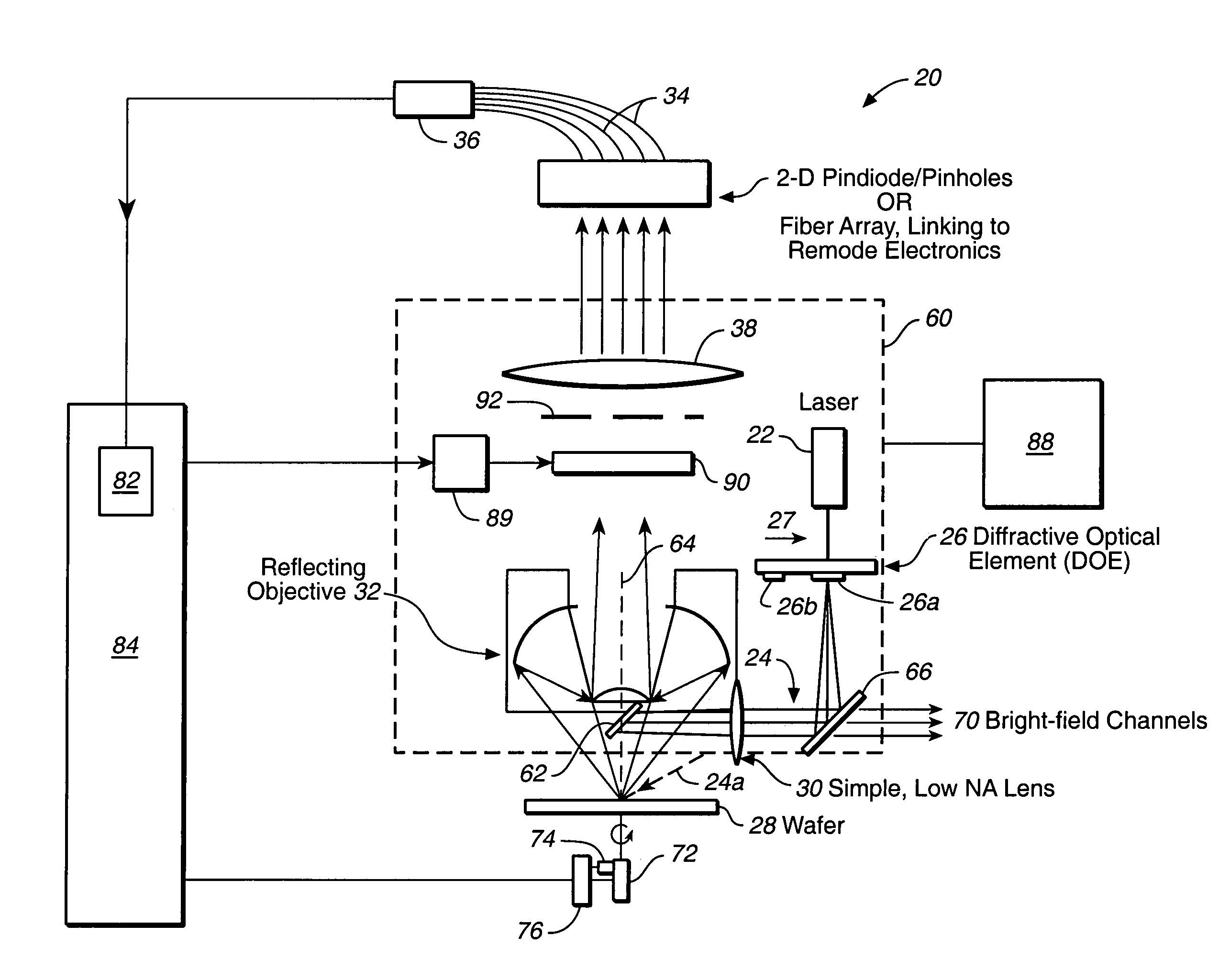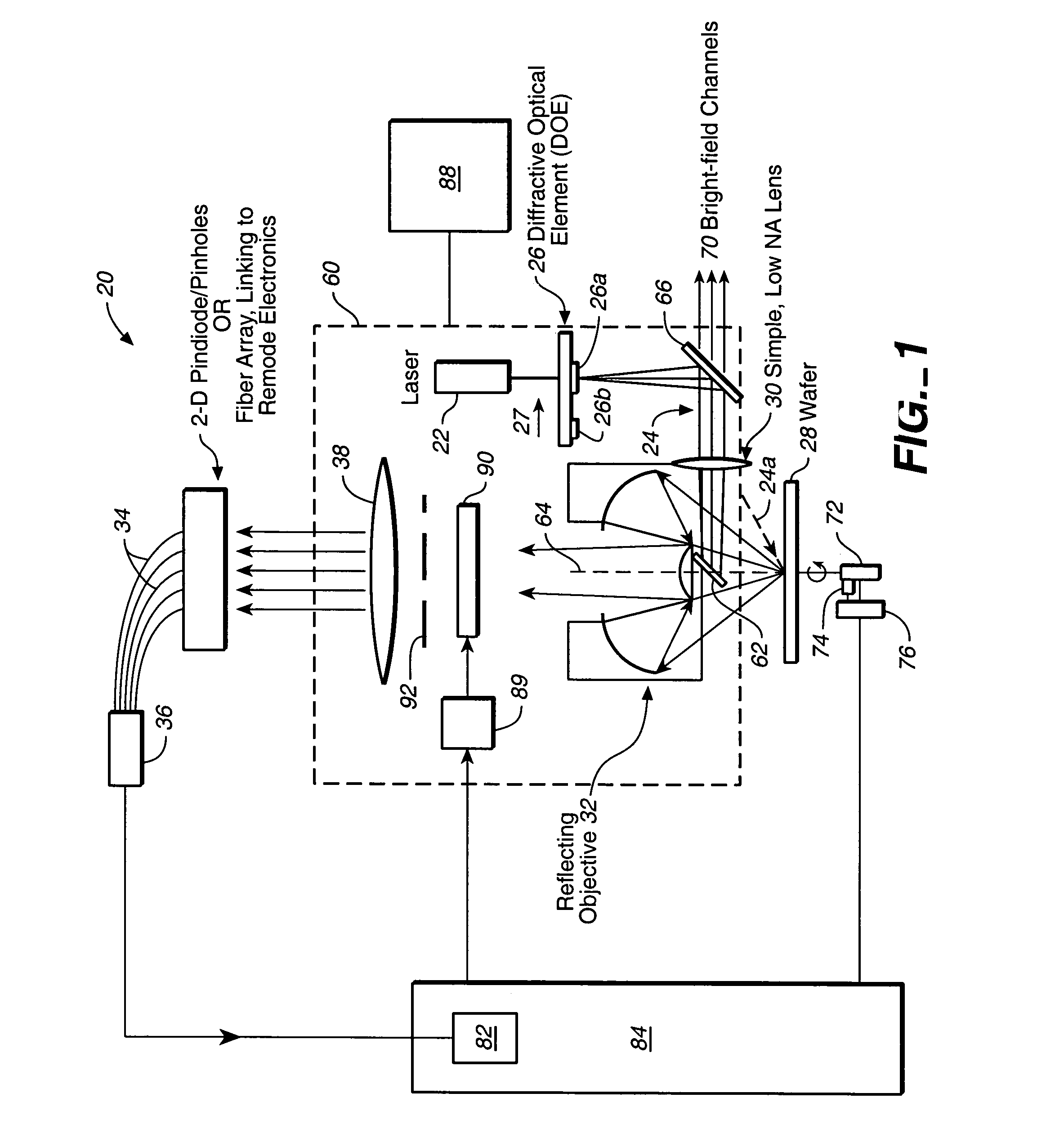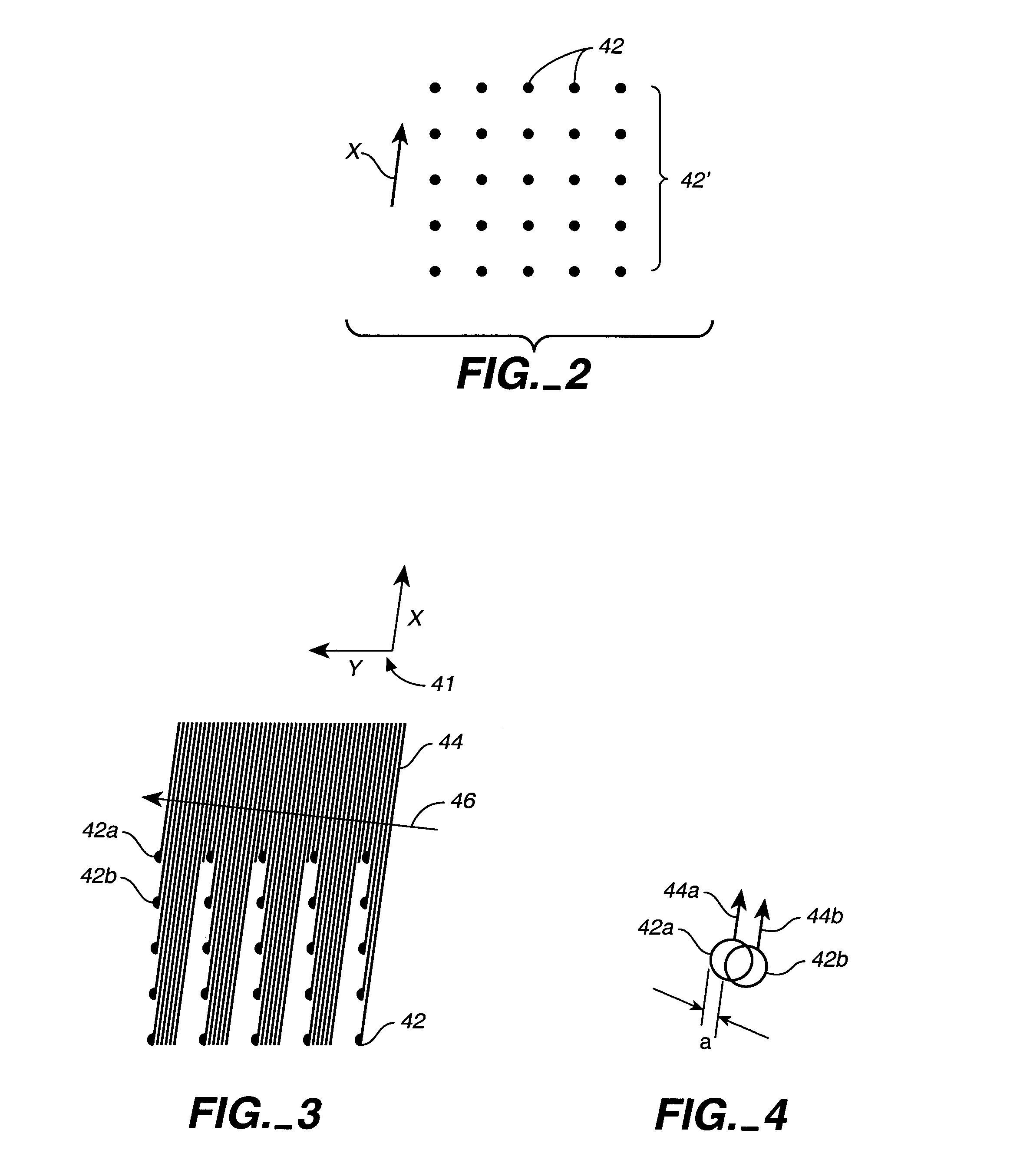Simultaneous multi-spot inspection and imaging
a multi-spot inspection and imaging technology, applied in the field of surface inspection, can solve the problem of increasing the amount of time required for the spot to scan over the entire surface, and achieve the effect of enhancing the sensitivity of detection and enhancing performan
- Summary
- Abstract
- Description
- Claims
- Application Information
AI Technical Summary
Benefits of technology
Problems solved by technology
Method used
Image
Examples
Embodiment Construction
[0026]The costs associated with dark-field pattern inspection has increased steadily with enhanced performance. As semiconductor fabrication approaches finer design rule and resolution, the complexity of inspection tasks has increased dramatically, which, in turn, increases the complexity and costs of the optical front end of the inspection tool and of detection electronics. Furthermore, the variety of situations calling for optical inspection means that a versatile optical inspection tool is preferably compact, rugged and has a small foot print so that it is less sensitive to vibrations, and integratable with semiconductor processing equipment. Preferably, the system can be used for inspecting surfaces with diffracting patterns thereon such as patterned wafers, as well as surfaces without such patterns such as unpatterned semiconductor wafers. The embodiments of this invention also enable faster and more sensitive inspection to be performed at a reasonable cost.
[0027]The elements o...
PUM
 Login to View More
Login to View More Abstract
Description
Claims
Application Information
 Login to View More
Login to View More - R&D
- Intellectual Property
- Life Sciences
- Materials
- Tech Scout
- Unparalleled Data Quality
- Higher Quality Content
- 60% Fewer Hallucinations
Browse by: Latest US Patents, China's latest patents, Technical Efficacy Thesaurus, Application Domain, Technology Topic, Popular Technical Reports.
© 2025 PatSnap. All rights reserved.Legal|Privacy policy|Modern Slavery Act Transparency Statement|Sitemap|About US| Contact US: help@patsnap.com



